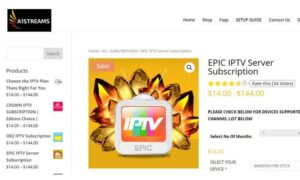Just a few years ago, web-based learning through PCs was seen as revolutionary. Companies could put their orientations and ongoing trainings on line and all employees would get standardized learning. Soon, with the spread of wifi, router-based, and satellite wireless networks, people could tap into this type of training while on the run. A salesperson could get trained in the latest marketing presentation while riding on a plane to her or his next destination. Or a person could get oriented to their new job from home before the first day they work.
Now, web-based trainings have taken another step forward due to the technology involved in internet-enabling devices besides computers. There are some obvious examples of how this might work. For example, your TV may be connected to the internet in a way that allows you to tune in to a training or conference as easy as changing to a specific channel. You could use your DVR and truly get the most out of the conference.
There are also less obvious but still valuable examples of the potential of internet enabled devices. For example, an internet enabled printer could tap into web-based trainings in helping you maximize the quality of photographs before printing them. You could learn how to crop, sharpen, lighten, etc. your photos by having an online guide that directs real-time information to a nearby computer. That web-based guide, because the device is internet enabled, can actually “know” what you’ve just done and direct you about whether that was correct or not. If you have an internet-enabled all-in-one device, you could also learn how to scan and fax for maximum results.
There are even some far out, but truly interesting ways this technology could be used. In the kitchen, internet-enabled appliances could actually teach you how to cook as you go, sending information to a nearby monitor about when food is done, or ready for the next step. An internet enabled coffee maker could use web-based training to help you brew perfect coffee that responds in real time to the fineness of the ground beans, the temperature of the water, or the density of the resulting beverage.
In all of these examples, web based learning would take place in real time, and could lead to new skills being developed. And in each example there is also the potential of tapping into live help. In the first example, a guide could catch you up with whatever you’d missed in the conference if you “arrive late”. In the internet enabled printer example, live help could assist you when a document presents particular difficulty – the person on the other end could “see” what is going on in real time. In the third example, a cook could teach people how to cook her or his recipes almost like he or she is there – even checking the temperature and other information from their remote location.
Perhaps the most exciting aspect of web based learning and internet enabled technology is the ability for people to do things together even when they are far apart. Literally hundreds of people could be part of a web based conference that helps them learn the latest uses for an internet enabled device. Or, your friend, relative, or teacher who knows how to do something you don’t could provide you with web based learning where they can see and react to your input on an internet-enabled device.



